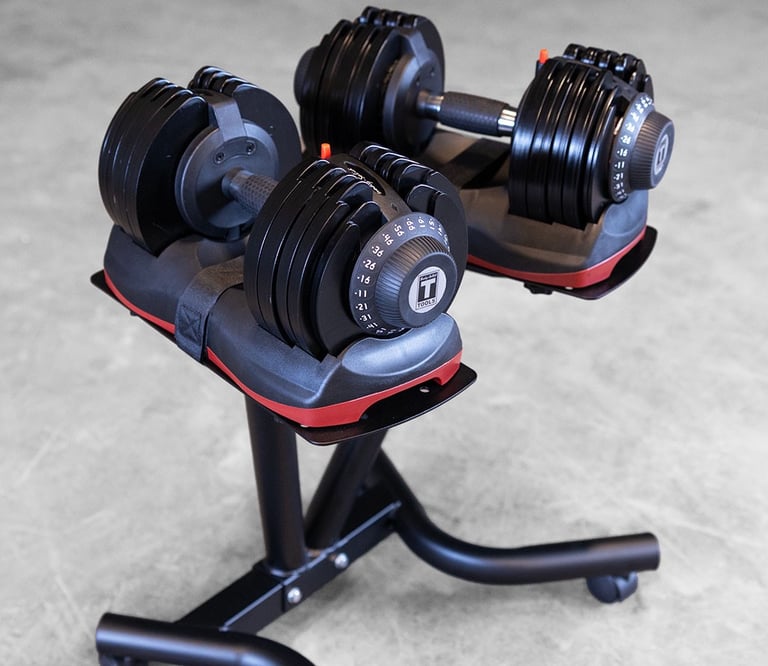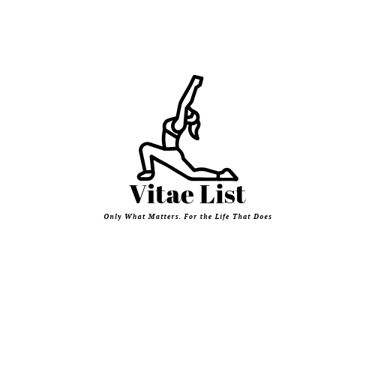Adjustable Weights: Do They Really Replace a Full Set?
Thinking about adjustable weights? Discover the pros and cons of adjustable dumbbells and kettlebells, and find out if they truly replace a full set for your home gym.
FITNESS GEAR
Vitae List
7/29/20253 min read


Adjustable Weights: Do They Really Replace a Full Set?
Explore the pros and cons of adjustable dumbbells and kettlebells for space-saving training.
Disclosure: As an Amazon Associate, we earn from qualifying purchases. Some of the links in this post may be affiliate links, which means we may earn a small commission at no extra cost to you.
In a world where fitness is moving from gym floors to living rooms, adjustable weights have become a go-to solution for strength training in small spaces. With the promise of replacing an entire rack of dumbbells or kettlebells, they’re a tempting buy for anyone looking to simplify their home gym.
But do they actually deliver the same versatility and results? Or are there compromises that come with compact convenience?
Let’s break down the pros and cons of adjustable weights and help you decide whether they’re the right fit for your routine.
🏋️♂️ What Are Adjustable Weights?
Adjustable weights are strength tools—like dumbbells or kettlebells—that allow you to change the resistance levelwithout needing multiple pieces of equipment.
Most Popular Types:
Dial-adjust dumbbells (e.g., Bowflex, NordicTrack)
Selector pin dumbbells (e.g., PowerBlock)
Adjustable kettlebells with removable plates or a digital selector
Plate-loaded handles for barbells or dumbbells
✅ The Pros of Adjustable Weights
1. Space-Saving Design
The most obvious advantage: one set can replace 5–20+ traditional weights. Ideal for small apartments, home offices, or multi-use rooms.
🏠 No need for a full rack when one piece of equipment does it all.
2. Cost Efficiency
While the upfront cost may seem high, buying a full set of individual weights usually costs more in the long run.
💰 Example: One adjustable dumbbell set (5–52 lbs) might cost $350 vs. $1,000+ for an equivalent full rack.
3. Quick Transitions Between Weights
With dials or pins, you can shift loads quickly—perfect for circuit training, supersets, or drop sets.
⏱️ Saves time during high-intensity or progressive workouts.
4. Clean, Minimal Setup
No piles of mismatched weights or tripping hazards. They keep your space looking organized and intentional.
✨ Form meets function.
⚠️ The Cons of Adjustable Weights
1. Bulkier Build
Adjustable dumbbells tend to be longer or wider, which can feel awkward—especially during exercises like curls, shoulder presses, or kettlebell swings.
🛑 May compromise form for smaller-framed users or tight movement patterns.
2. Durability Concerns
Not all models are built to be dropped. Some have plastic parts or delicate mechanisms that don’t handle impact well.
🔧 Not great for powerlifters or those training with intensity and speed.
3. Limited Weight Increments
Many systems only adjust in larger jumps (e.g., 5 lbs), which can hinder progressive overload, especially at lower weights.
🏗️ Fixed weights often allow more fine-tuned progression.
4. Learning Curve and Setup Time
Some systems are fast (like dials), while others require manual changes that interrupt workout flow.
🧠 Takes getting used to—and may frustrate beginners.
🧠 Are Adjustable Weights Right for You?
Here’s how to decide:
Great Fit For May Not Be Ideal For Small-space home gyms Athletes who drop weights Beginners or intermediates Advanced lifters needing max loads Those doing full-body circuits Users needing small weight jumps Minimalist or aesthetic setups Functional or kettlebell sport athletes
🔄 Top Brands to Explore
Bowflex SelectTech (dumbbells and kettlebells – fast dial system) - https://amzn.to/40PpdlT
PowerBlock (compact block-style dumbbells) https://amzn.to/3In4NKO
AtivaFit Dumbbell (Heaviest set without breaking the bank) - Our preferred dumbbell of choice https://amzn.to/4lwXWxe
AtivaFit Adjustable Kettlebell (plate-loaded, extremely durable) https://amzn.to/40gBeAN
Kettlebell Kings / REP Fitness (adjustable kettlebells) https://amzn.to/3TvSka2
💡 Final Thoughts
Adjustable weights aren’t for everyone—but for many, they’re a game-changing investment. If you value versatility, compact storage, and convenience, they can absolutely replace a full set for most training goals.
They shine in general strength and conditioning, bodyweight circuits, and functional training. But if you’re pushing heavy loads or competing in sport-specific lifting, traditional gear may still win out.
Either way, the best equipment is the one you’ll actually use—consistently.
